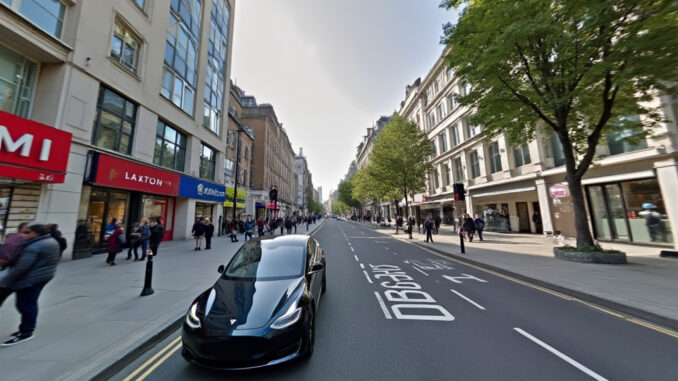
UK ministers still refuse to consider that motorists have good reason to be wary of electric cars and to avoid buying them.
No invention has done more to liberate society than the mass-produced car. It has become as democratized as such a complex piece of machinery can be. Today, just £1,000 gets you a Vauxhall Corsa from the early 2010s. [emphasis, links added]
While it won’t be fast, exciting, or luxurious, it will get you as far as your petrol money and dreams will take you. Or, more likely, to work and back.
Electric cars upend much of this, bringing greater expense and requiring a host of well-documented sacrifices from drivers. Unsurprisingly, most are unwilling to make the switch.
This issue has become so pronounced that manufacturers are now restricting sales of petrol and diesel models to avoid the gargantuan government fines (£15,000 per car over quota) that will be imposed on brands if they don’t shift enough EVs.
Such threats wouldn’t be needed if the product were in demand. Yet ministers still refuse to consider that motorists have good reason to be wary of electric cars. Indeed, they haven’t just plowed on with the push for EVs, they’ve accelerated it.
The £15,000 fine on non-EV sales was first introduced by the Conservative government last year.
Keir Starmer’s new Labour government then pledged to reinstate 2030 as the date by which sales of new petrol and diesel cars will be banned altogether, reversing the five-year concession granted by Tories.
All this pro-EV legislation has been drawn up by people who tend to be isolated from the population at large.
For starters, MPs’ salaries stand at £91,000. And the political set is by its nature London-centric, with empathy for motorists as hard to come by as a bus in the countryside – all the more so if one’s role brings a chauffeured ministerial car from which to dream up such lofty targets.
Away from Westminster, EV advocates often blame poor sales of electric cars on ‘misinformation’. As if drivers are clotwitted labradors, swayed not by the leashes EVs put on them, but by shiny headlines and a ‘torrent of stuff from right-wing and vested interests’, as former Top Gear host Quentin Willson put it to the Transport Select Committee earlier in the year. Presumably, he would consign this article to that category.
Automotive pundits who are established enough to make it onto such panels and appear on the media circuit are likely to be rather comfortably off, thank you very much. This only echoes the disconnect that politicians are prone to.
Less-vaunted motoring hacks, meanwhile, have easy access to test vehicles, allowing them to circumvent the issues battery power brings, such as the limited distance you can drive on a single charge and the inconvenience of recharging during a journey.
At the heart of discussions around EVs rests a trend found with any number of topics. Those advocating for a new ‘progressive’ thing all too often have an intractable inability to understand the concerns held by people outside their bubble, who are fond of the status quo and cautious about upending it.
This disparity is intrinsic not just to the narratives around EVs, but also to the cars themselves. Charging is so stacked against the poor as to be an ideal subject for fans of class analysis.
If your home has a driveway (a feature that makes a house more valuable), then an EV can make a great deal of sense. Each morning, you come down to a car conveniently filled with cheap overnight electricity, priced at as little as seven pence per unit and taxed at a liberal five percent VAT.
Not so the individual who has to park on the street. He must not only pay a commercial rate of perhaps 85 pence per unit of electricity but is also hit with 20 percent VAT.
This means that while filling an EV at home can be as cheap as £3.50, the same amount of electricity going into the same car can easily cost £42.50 on the open road. Drivers of the world, unite – you have nothing to lose but your cables.
Read rest at Spiked
Take the Survey at https://survey.energynewsbeat.com/
Crude Oil, LNG, Jet Fuel price quote
ENB Top News
ENB
Energy Dashboard
ENB Podcast
ENB Substack





